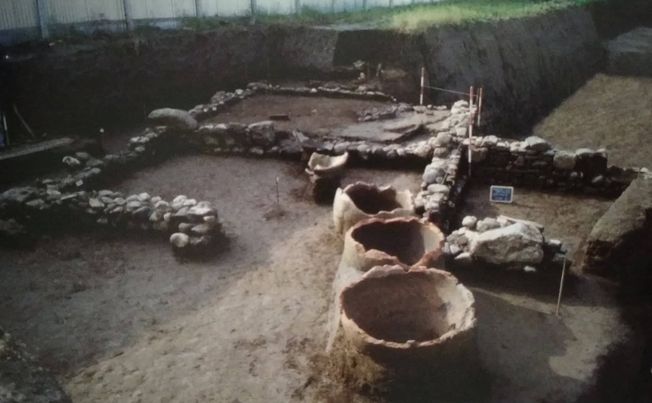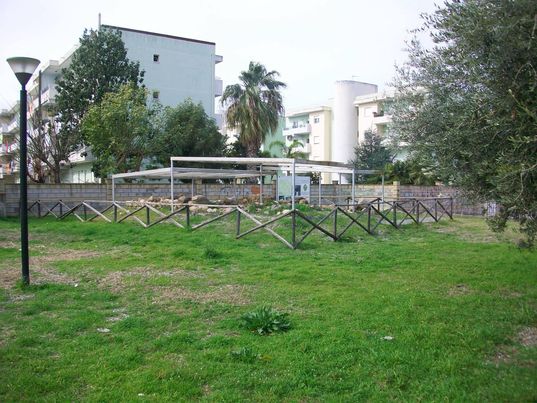The use of the 'rural' dwelling complex, dating back to the late Hellenistic period, now enhanced within a municipal area, is the result of a synergic relationship between the Messina Superintendency for Cultural and Environmental Heritage, which wanted the conservation of the ancient structures, the company that carried out the building work in the area, which collaborated on the economic part, and the municipal administration, which allowed the new location of the structures in an area of public use (Playground).

Hellenistic Farmhouse Contrada Ciantro
The demanding work of relocating and reassembling the wall structures in their current destination, which is in any case adjacent to the original one, entailed the resolution of various technical and conservation issues that were finally concluded in 2004 thanks to European funding.


Adequately protected by a galvanised tubular and polycarbonate covering, amply documented by a didactic-illustrative apparatus, the preserved structures, part of a more extensive planimetric articulation, offer a significant example of a permanent, single-family dwelling installation, whose layout dates back to the end of the 4th century B.C. and its full use to the 3rd/2nd century B.C., as evidenced by the chronological-typological study of the materials in phase with the occupation levels.
Four rooms, communicating two by two, sealed by the collapse of the elevations, built with stones, mixed with cobblestones and brickwork, laid dry. Two of the rooms, with a wide quadrangular plan, must have had a tiled roof, two were probably 'open'. The archaeological evidence has also documented the existence, on the levels of abandonment and destruction of the Late Hellenistic building, of a phase of frequentation between Late Antiquity and the Byzantine period suggested by a series of dolia, perhaps in phase with a relatively superficial plan of use today, of which no trace remains (4th-5th cent. A.D.); as well as the use of a section of the built area for burial purposes in the Byzantine period, with poor burials, two of adults in earthen pits, with and without protection, one of an infant, in a commercial amphora.
Tigano G., Coppolino P., “Milazzo. L'Antiquarium e altre emergenze archeologiche nell'area urbana. Breve guida.”, Palermo 2017
INDIRIZZO
Hellenistic Farmhouse Contrada Ciantro Via Ciantro 66, Milazzo (ME)







